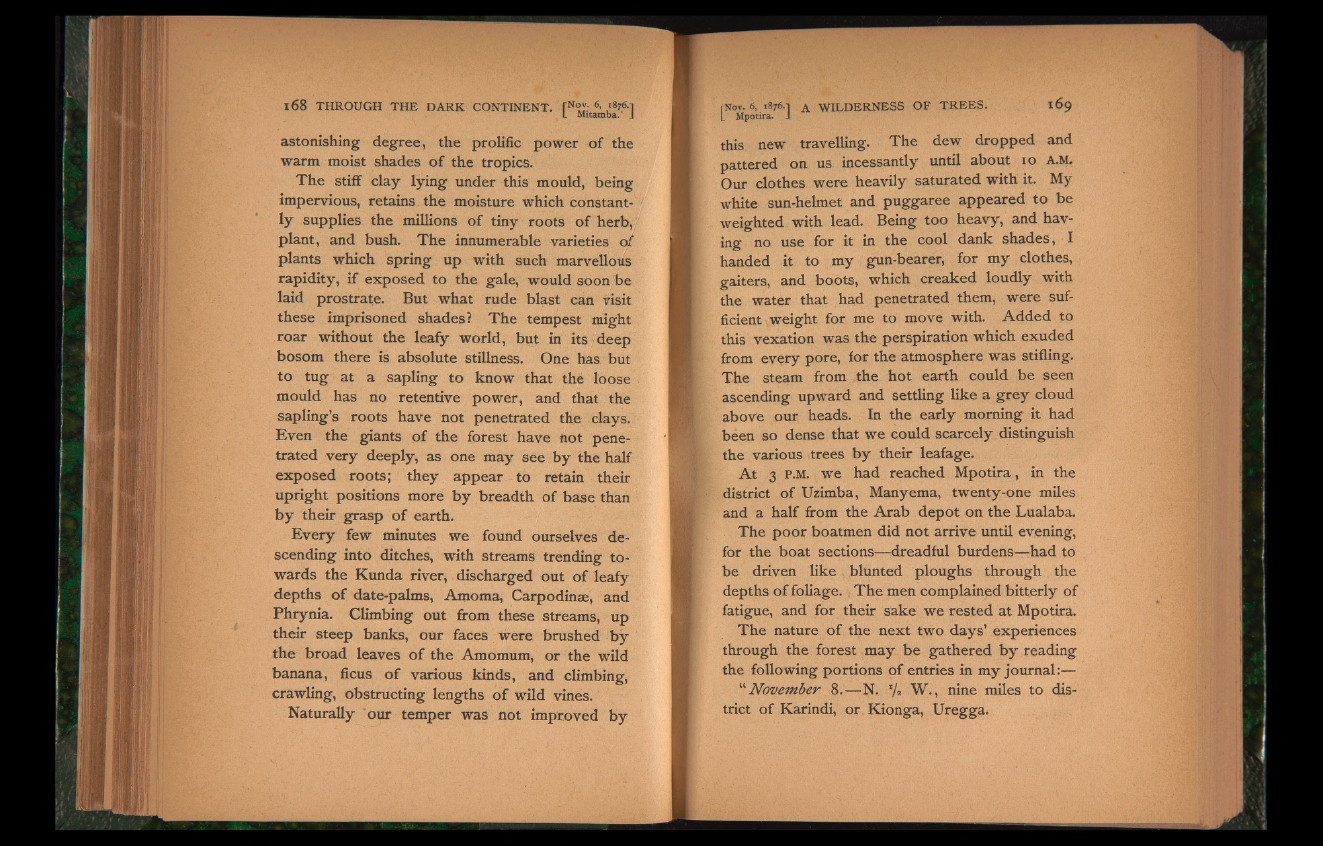
astonishing degree, the prolific power of the
warm moist shades of the tropics.
The stiff clay lying under this mould, being
impervious, retains the moisture which constantly
supplies the millions of tiny roots of herb,
plant, and bush. The innumerable varieties of
plants which spring up with such marvellous
rapidity, if exposed to the gale, would soon be
laid prostrate. But what rude blast can visit
these imprisoned shades? The tempest Height
roar without the leafy world, but in its/deep
bosom there is absolute stillness. One has but
to tug at a sapling to know that the loose
mould has no retentive power, and that the
sapling’s roots have not penetrated the clays.
Even the giants of the forest have not penetrated
very deeply, as one may see by the half
exposed roots; they appear to retain their
upright positions more by breadth of base than
by their grasp of earth.
Every few minutes we found ourselves descending
into ditches, with streams trending towards
the Kunda river* discharged out of leafy
depths of date-palms, Amoma, Carpodinae, and
Phrynia. Climbing out from these streams, up
their steep banks, our faces were brushed by
the broad leaves of the Amomum, or the wild
banana, ficus of various kinds, and climbing,
crawling, obstructing lengths of wild vines.
Naturally our temper was not improved by
rNov. 6, 1876.-1 A WILDERNESS OF TR E E S . 169
L Mpotira. I
this new travelling. The dew dropped and
pattered on us incessantly until about 10 A.M.
Our clothes were heavily saturated with it. My
white sun-helmet and puggaree appeared to be
weighted with lead. Being too heavy, and having
no use for it in the cool dank shades, I
handed it to my gun-bearer, for my clothes,
gaiters, and boots, which creaked loudly with
the water that had penetrated them, were sufficient
weight for me to move with. Added to
this vexation was the perspiration which exuded
from every pore, for the atmosphere was stifling.
The steam from the hot earth could be seen
ascending upward and settling like a grey cloud
above our heads. In the early morning it had
been so dense that we could scarcely distinguish
the various trees by their leafage.
At 3 P.M. we had reached Mpotira, in the
district of Uzimba, Manyema, twenty-one miles
and a half from the Arab depot on the Lualaba.
The poor boatmen did not arrive until evening,
for the boat sections— dreadful burdens—had to
be driven like blunted ploughs through the
depths of foliage. The men complained bitterly of
fatigue, and for their sake we rested at Mpotira.
The nature of the next two days’ experiences
through the forest may be gathered by reading
the following portions of entries in my journal:—
“ November 8.— N. % W., nine miles to district
of Karindi, or. Kionga, Uregga.